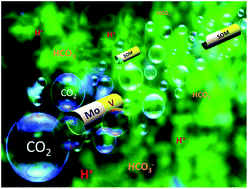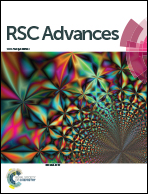Autonomous movement in mixed metal based soft-oxometalates induced by CO2 evolution and topological effects on their propulsion†
Abstract
In current nanoscience, the synthesis of autonomously moving nanomotors proves to be an immediate challenge. In this work we have reported the synthesis of soft-oxometalate (SOM) based nanomotors comprising vanadium and molybdenum oxoanions which show autonomous movement in response to a chemical fuel like that of an aqueous solution of sodium bicarbonate. CO2 produced from bicarbonate in an acidic environment created by the SOMs is solely responsible for creating the chemical potential gradient which induces motion in these nanomotors. We have explained this motion qualitatively and also shown how chemical anisotropy and size of these nanoparticles influence such autonomous motion.



 Please wait while we load your content...
Please wait while we load your content...